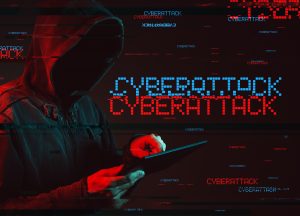
As 2022 marches on, our world is becoming increasing unstable. Worldwide conflicts are causing worldwide, nationwide, and local problems.
We are now faced with out-of-control gas prices, which will have a trickle-down effect, not just at the gas pump, but in every part of our economy and lives. Trucks may soon not find it profitable to deliver food, materials, and even medical supplies. Store shelves, which are already showing signs of shortages and escalating food prices may soon be at a point where the food may be in stock but unaffordable.
Inflation just hit a 4 decade high and there is no end in sight.
 Add to this state and federal agencies warn healthcare providers of imminent cyberattacks.
Add to this state and federal agencies warn healthcare providers of imminent cyberattacks.
“The Cybersecurity and Infrastructure Security Agency (CISA), the Federal Bureau of Investigation (FBI), and the Department of Health and Human Services (HHS). Issued an advisory that cybercriminals were planning on targeting healthcare systems with ransomware for financial gain.”
As I have pointed out in previous articles China and India play an integral part in our medication production and raw materials to make medications. With world events affecting these supply chains we really could be looking at a catastrophe in the making.
Cognitive dissonance-the mental conflict that occurs when beliefs or assumptions are contradicted by new information.
For many, the belief and wish is that our lives will go back to “normal”. This is highly unlikely, and in order to survive and thrive in this “new normal” we must learn to adapt to our every changing situations.
Our mind is our greatest asset- or liability
Resilience and adaptability
“Psychologists define resilience as the process of adapting well in the face of adversity, trauma, tragedy, threats, or significant sources of stress—such as family and relationship problems, serious health problems, or workplace and financial stressors. As much as resilience involves “bouncing back” from these difficult experiences, it can also involve profound personal growth.”
Over the past two years many have been able to find equilibrium, balance, and ability to cope. Others did not. Alcohol abuse rose during the pandemic. Suicide was at an all-time high for our youth.
In order to survive and thrive in this new world we need to either have or develop skills that can help us cope. Don’t feel you need to go it alone. There is help. Our mindset is everything in this new world we are seeing unfold. If you or a loved one needs help Mentalhealth.gov has resources to help you or your loved one cope and develop resiliency skills.
Our mind as our friend or foe will make or break us.
Act, don’t react
- Coping with the vast changes around us requires a different way of life, in our interpersonal relationships, how we work, play, eat and travel. We can see the glass as half full or half empty. Develop an attitude of gratitude. It really is up to us. Stay calm, and keep a rational mindset, don’t panic.
- Take, for example, the out-of-control gas prices. For some it is necessary to commute, given the fact that work and daycare are on opposite parts of town. Perhaps your employer would allow you to work a 4 days a week schedule, and either work longer hours or take some work home? That would save on time, gas, and maybe even daycare.
If you are on a bus line, many buses are now equipped with front bike racks. Taking advantage of these racks could offer you a light workout.
Facing out of control grocery bills? Community gardens are a great way to lower your food budget, grow vegies, connect with community, and learn different gardening skills. Contact your local city hall for a list of community gardens in your area.
In addition, microbes in soil are powerful antidepressants. Gardening provides not only food for the body, but food for the soul.
If you are living in and apartment or have limited space, there are some wonderful you tube videos on container and indoor gardening.
- Cyberattacks on our grid and computers are something out of our control, but with a preparedness mindset we can mitigate and not allow these situations to affect us as much as they would otherwise.
- Check your water supply-Cyberattacks can affect infrastructure such as utilities and water supplies.
- Plan on at least 5 gallons of water a day per person. You should have on hand least 2 weeks’ worth of clean, purified water, or a way to purify water. (See previous articles for guidance)
- Food– are you stocked up and do you have easy to prepare food (and can opener)? Do you have way to heat food? Menu planning and utilizing your local USDA ag extension will help keep your grocery costs down and in case of grid down situation you will be equipped to handle this.
- Have activities for all members of the family in case the electric grid and internet goes down. Taking up a hobby such as reading, drawing, string arts, musical instruments.
- Medical supplies, medications, and supplements. Make sure you have ample supply to get you through the most challenging and extended crisis. Talk to your healthcare provider about having extra medications on hand in case of supply disruption.
We will get through this, focus on what you can do and not what you can’t. Even though our way of life is rapidly changing, we can see it as an opportunity for growth.